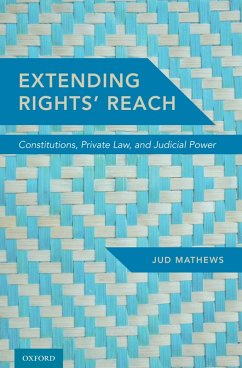Constitutional rights protect individuals against government overreaching, but that is not all they do. In different ways and to different degrees, constitutional rights also regulate legal relations among private parties in most legal systems. Rights can have not only a vertical effect, within the hierarchical relationship between citizen and state, but also a horizontal one, on the citizen-to-citizen relationships otherwise governed by private law. In every constitutional system with judicially enforceable constitutional rights, courts must make choices about whether, when, and how to give those rights horizontal effect. This book is about how different courts make those choices, and about the consequences that they have. The doctrines that courts build to manage the horizontal effect of rights speak to the most fundamental issues that constitutional systems address, about the nature of rights and of constitutionalism itself. These doctrines can also entrench or enhance judicial power, but in very different ways depending on the legal system. This book offers three case studies, of Germany, the United States, and Canada. For each, it offers a detailed account of the horizontal effect jurisprudence of its apex court-not in isolation, but as a central feature of a broader account of that country's constitutional development. The case studies show how the choices courts make about horizontal rights reflect existing normative and political realities and, over time, help to shape new ones.
Dieser Download kann aus rechtlichen Gründen nur mit Rechnungsadresse in A, B, BG, CY, CZ, D, DK, EW, E, FIN, F, GR, HR, H, IRL, I, LT, L, LR, M, NL, PL, P, R, S, SLO, SK ausgeliefert werden.









